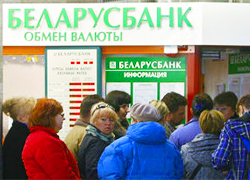Die Welt: Belarus in trouble due to Russian crisis
16- 21.01.2015, 14:00
- 33,272

Dependence on Moscow is the Achilles heel of the Belarusian economy.
Members of the Eurasian Economic Union have to look for ways to tackle the crisis provoked by the fall of the Russian economy, ZN.ua cites Germany's Die Welt.
“Close economic ties with weakening Russia create problems for the neighbouring countries as their economies depend on migrant remittances. Will the whole region become poorer?” the newspaper writes.
“If Russia coughs, its neighbours have a fever – the wisdom clearly illustrate dependence of the CIS member states on Russia. Of course, Russia itself has a high temperature,” the article reads.
The crisis in Russia is caused by a decline in the economic growth, western sanctions and the fall of oil prices. As “temperature” in Russia grows, it begins to affect the neighbouring states that seem to be vulnerable to a delayed crisis.
“The weakening Russian economy threatens the country with the outflow of money,” the newspaper writes. The World Bank expects a 2.9% decline in Russia's economy this year. The European Bank for Reconstruction and Development (EBRD) is even more pessimistic, predicting a 4.8% contraction.
Lower remittances will weaken consumer demand and local currencies in the countries depending on the Russian economy. The process has already started. The Belarusian ruble has already been devalued.
The economic growth of post-Soviet countries will significantly slow down this year. Strong dependence on Russia is their Achilles heel. The author of the article thinks the past year was the year of the high economic growth for certain CIS countries, so Russia's recession will not affect them in 2015. But the economic growth of Ukraine and Belarus will slow, the newspaper thinks.
“Members of the Eurasian Economic Union will gradually look for ways to tackle the crisis. They will send more signals to Europe,” the article concludes.
The Financial Times wrote earlier that the EBRD significantly lowered its forecast for Russia's economy for the first time since the 2009 crisis.
Capital outflow from Russia in 2014 exceeded all forecasts and reached 150 billion dollars. The outflow increased in autumn.
The Belarusian ruble has been devalued 40% in the past month. Despite the apparent stabilisation of the exchange rate, exchange offices still don't have foreign cash for sale. Queues of people stand in banks waiting for those who will sell dollars and euros to the bank.










